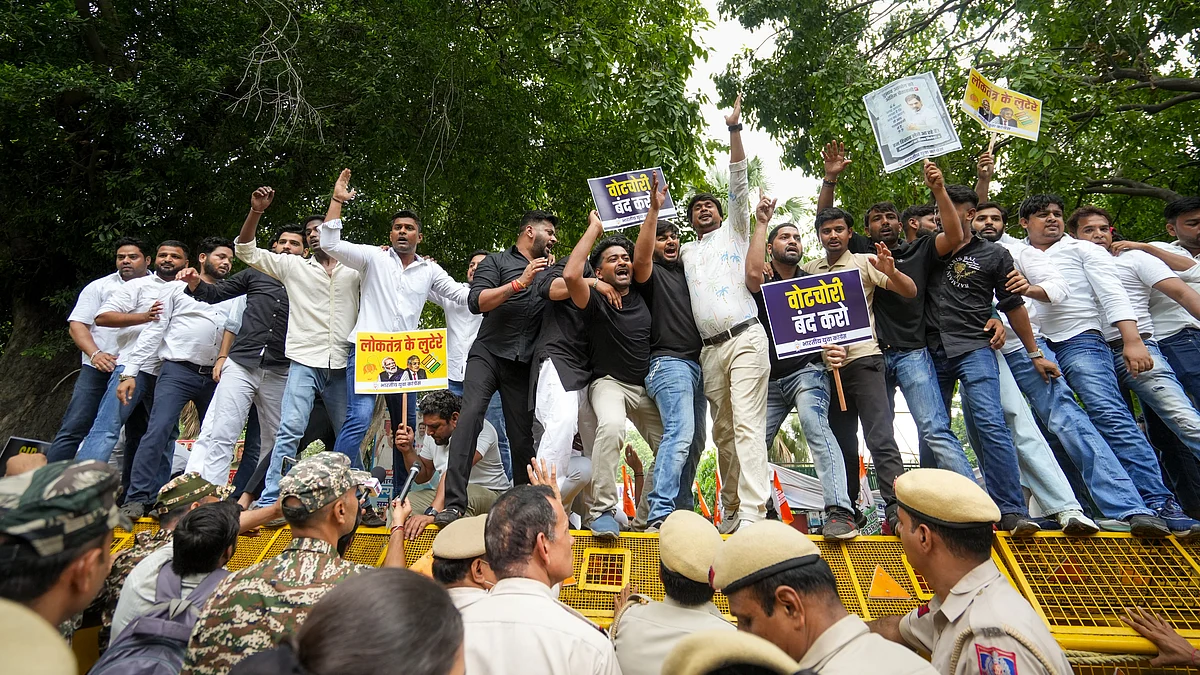Former civil servants sound alarm over Bihar’s electoral special roll revision
The CCG, a group of 93 retired civil servants, warned the revision could disenfranchise millions lacking proper documents

A collective of former civil servants has issued a strongly worded open statement warning that the Election Commission of India’s (ECI) Special Intensive Revision (SIR) of electoral rolls in Bihar threatens the very foundation of Indian democracy — universal adult suffrage.
In their statement, the Constitutional Conduct Group (CCG), comprising retired members of the All India and Central Services, said the revision exercise risked disenfranchising millions of citizens, particularly the poor and marginalised, who lack adequate documentation to prove their citizenship. The group emphasised that it has no political affiliations and is guided solely by constitutional values of neutrality and impartiality.
According to the CCG, India’s electoral system historically functioned on the principle of inclusion, presuming citizenship unless disputed, with the ECI proactively ensuring that even those in remote and marginalised communities were brought into the electoral process. The current exercise, they argue, reverses this principle by placing the burden of proof on voters themselves.
The former bureaucrats noted that earlier a liberal approach to documentation was adopted, acknowledging the widespread lack of official papers among the poor. By contrast, the SIR has introduced rigid requirements that could strip voting rights from millions who have been registered in successive elections since 2003.
Particular concern was raised over the ECI’s decision to privilege the 2003 electoral rolls. Electors included in that year’s roll are exempted from providing fresh documentation, and their children are also eligible through this route. The CCG said this created an “untenable, unjust and discriminatory” hierarchy, ignoring all subsequent rolls published in the last two decades, including those used in the 2024 Lok Sabha elections.
The statement accuses the ECI of effectively introducing the controversial National Register of Citizens (NRC) “through the backdoor” under the guise of sanitising voter lists. The group alleged that the new procedure:
Shifts the burden of proving citizenship onto voters;
Arrogates to the ECI powers constitutionally vested in the Home Ministry;
Nullifies recent electoral rolls;
Prescribes arbitrary documentation requirements, disproportionately affecting women and the poor;
Vests extraordinary discretionary powers in local officials, creating avenues for rent-seeking and abuse.
Reports of fraud and forgery
The CCG cited multiple media reports, particularly video investigations by journalist Ajit Anjum, showing widespread irregularities. Evidence allegedly includes forged signatures, bulk-filling of forms by Booth Level Officers (BLOs), enrolments of deceased individuals, and staged photographs of villagers holding voter forms, which were later confiscated by officials.
At a public hearing in Patna on 21 June, presided over by former Chief Information Commissioner Wajahat Habibullah and retired Patna High Court judge Justice Anjana Prakash, testimonies from villagers further highlighted unethical practices and fraudulent enrolments.
The CCG said the “breakneck” pace of the SIR, combined with inadequate infrastructure and opaque procedures, has vitiated the entire process. The group warned that the continuation and possible expansion of this exercise beyond Bihar could become “one of the biggest threats Indian democracy has faced, from the very institution that is meant to uphold the system of universal suffrage.”
Stating that their petitions to the ECI in earlier matters had been “ignored and casually dismissed”, the civil servants addressed their letter directly to the public, urging the mobilisation of opinion to pressure the Commission into corrective action.
They also expressed hope that the Supreme Court, which is currently examining the matter, would intervene. “Most of us have had long experience of conducting and supervising elections, including the preparation of electoral rolls,” the statement read, “and are familiar with the complexities of doing so in a vast democracy like ours.”
Follow us on: Facebook, Twitter, Google News, Instagram
Join our official telegram channel (@nationalherald) and stay updated with the latest headlines
